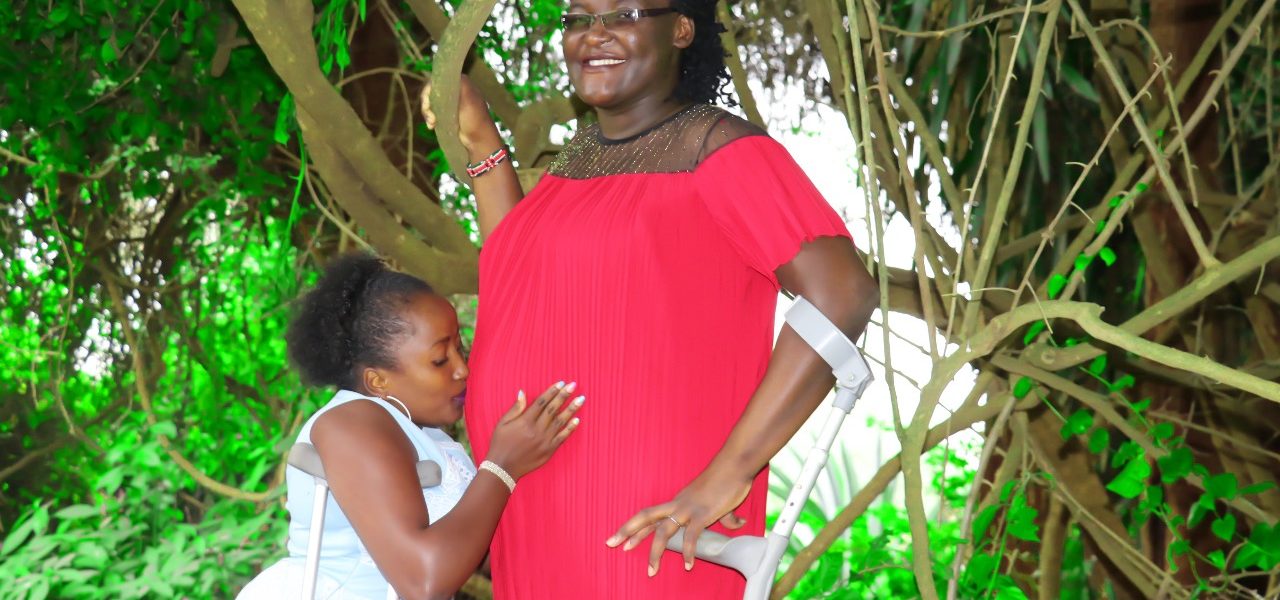As Lin Yutang rightfully said “Of all the rights of Women, the greatest is to be a Mother. Every year, 11th April is set aside by the global health community to commemorate the international day for maternal health and rights with an objective of raising awareness on the rights of child bearing women and push for action on maternal health rights violations. News of pregnancy, more often is received by Joy and anxiety in equal measure. For Women, motherhood is considered a treasured gift and a trans formative experience not only to the mother and the nuclear family but also the entire community.
For majority of women with disabilities, pregnancy presents with a lot of fear, uncertainties and anxiety owing to the challenges presented by the health system and social support system. Some even opt not to have Children lets they experience the hostile environment or even lose their lives and their children in the process. More often when women with disabilities make it through pregnancy and child delivery they are seen as “heroes” for being able to navigate the system and bringing life to this word. Ideally the playground should be leveled to create an enabling environment for women with disabilities to fully enjoy maternal health without fear of uncertain outcomes.

The “fears” and experiences of Women with Disabilities:
A conversation with various women with disabilities revealed the following shared experiences and fears on maternal health:
A deaf Woman – “I ended up delivering my baby on the floor because I could not communicate with the midwife who could not use sign language whereas I Could not speak verbally”
A physically Disabled Woman – “When I went to the hospital to deliver my baby in company of my husband the midwife posed a demeaning question to my husband “Who did this to her” …I felt dehumanized, particularly because the demeaning question was posed to my husband.
A Woman of Short stature – “It was tough delivering my baby, the delivery bed was not adjustable and I could not easily climb the delivery bed. Thanks to the Medical team who used innovative ways to help me safely deliver my baby”
“I labored for too long in the delivery unit, by the time the doctor recommended an emergency Cesarean section it was too late and my son ended up being deaf as a result… The pain I endure to date has been compounded bearing in mind that am a woman with physical disability” – A woman with post-polio paralysis.
As a Woman with scoliosis I can’t even imagine being pregnant! How will I deal with pregnancy baby bump considering that my spine has pre-existing issues?
These are just a few among the many voices of Women with disabilities on maternal health.
Kenya has made strides in legal and policy frameworks on maternal health. We have useful instruments which include Article 43 of the Constitution, National patient rights charter and Health Act that provide for Humane, respectful and dignified care of patients. The big question is to what extent is the public aware of these provisions? To what extent are the policy and legal frameworks enforced to safeguard the rights of women with disabilities in pursuit of maternal health?
Echoing the words of Merete Leonhardt-Lupa “Let us make pregnancy an occasion when we appreciate our Female bodies.”
Mildred Omino is a Kenyan feminist, gender and disability rights activist

